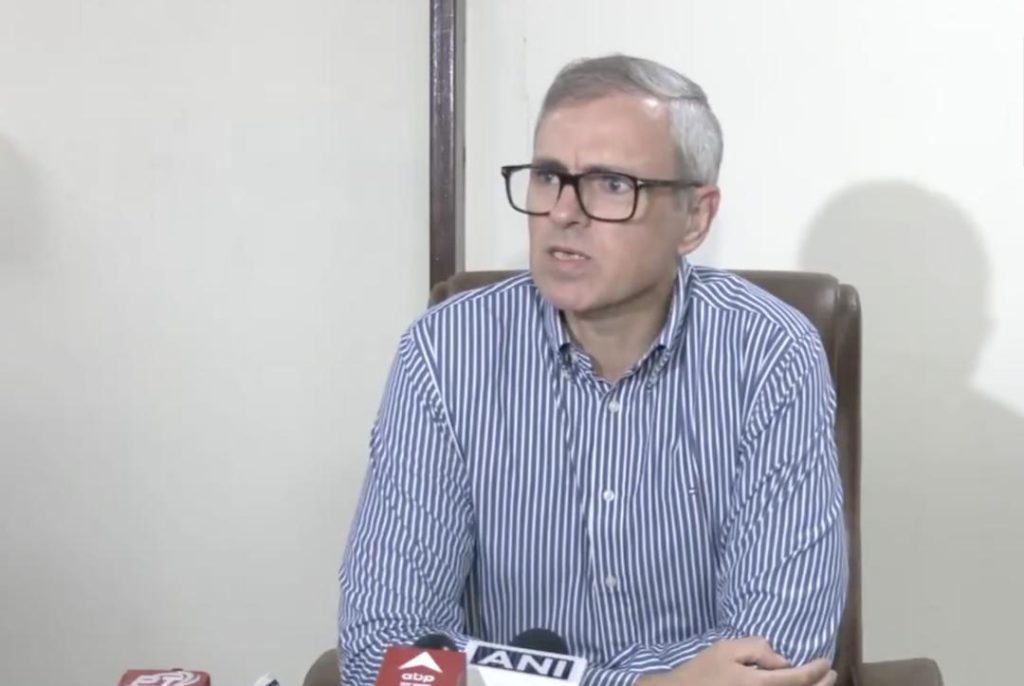
Why Should I Send Water to Punjab?: J&K CM on Canal Proposal
In a recent development, the Jammu and Kashmir Chief Minister, Omar Abdullah, has voiced his concerns over the proposed 113 km-long canal that aims to redirect surplus water from three western rivers of the Indus system in J&K to Punjab, Haryana, and Rajasthan. The canal, which has been touted as a solution to alleviate water scarcity in the aforementioned states, has received a lukewarm response from the J&K CM, who has raised several questions regarding the proposal.
“Why should I send water to Punjab?” Abdullah asked, emphasizing his skepticism towards the plan. “Punjab already had water under the Indus Waters Treaty,” he added, implying that the neighboring state has already received its fair share of water under the treaty. The Indus Waters Treaty, signed in 1960, is a water-sharing agreement between India and Pakistan that allocates the waters of the Indus River system among the two countries.
Abdullah’s concerns are not unfounded. The treaty has been a subject of controversy in the past, with both India and Pakistan accusing each other of violating its provisions. In recent years, the relationship between the two countries has become increasingly strained, with tensions rising over issues such as terrorism, border disputes, and trade.
The J&K CM’s skepticism towards the canal proposal is also fueled by the fact that Punjab has historically been the largest consumer of water from the Indus River system. According to an estimate, Punjab’s agriculture sector alone accounts for over 90% of the state’s water consumption, with the remaining 10% being used for urban and industrial purposes. In contrast, J&K’s water needs are largely met by the three western rivers of the Indus system, which are the Jhelum, Chenab, and Ravi rivers.
Abdullah’s question, “Did they give us water when we needed it?” is particularly significant in the context of the region’s complex history. The Indus Waters Treaty was signed during a time when India and Pakistan were still reeling from the devastating effects of the partition of the subcontinent in 1947. The treaty was seen as a way to promote regional cooperation and stability, but over the years, it has become increasingly contentious.
In recent years, J&K has faced severe water scarcity, particularly during the summer months when the need for irrigation is at its peak. The state’s agricultural sector is a significant contributor to its economy, and any disruption to the water supply can have far-reaching consequences. However, the proposed canal, which would redirect water from the western rivers to Punjab, Haryana, and Rajasthan, has raised concerns about the impact it could have on J&K’s water security.
The J&K CM’s concerns have also been echoed by various environmental groups and experts, who have raised questions about the feasibility and environmental impact of the canal project. The project would require the construction of a 113 km-long tunnel, which would be one of the longest in the world. The tunnel would need to be built through difficult terrain, and the environmental impact of such a project would be significant.
In addition, the canal project has also been criticized for its lack of transparency and public consultation. The proposal was reportedly announced by the Central government without consulting the J&K government or the people of the state. This has led to widespread resentment and mistrust among the people of J&K, who feel that their concerns and interests are being ignored.
In conclusion, the proposed canal project raises several important questions about water sharing and management in the region. While the project may be seen as a solution to alleviate water scarcity in Punjab, Haryana, and Rajasthan, it is important to consider the impact it could have on J&K’s water security and the environment. As the J&K CM has pointed out, Punjab has already received its fair share of water under the Indus Waters Treaty, and it is unclear why J&K should be expected to redirect water to the neighboring state.
Ultimately, the decision to proceed with the canal project should be based on a thorough assessment of its feasibility, environmental impact, and the potential consequences for J&K’s water security. The people of J&K deserve to be consulted and involved in the decision-making process, and the government should prioritize transparency and accountability in its dealings.






